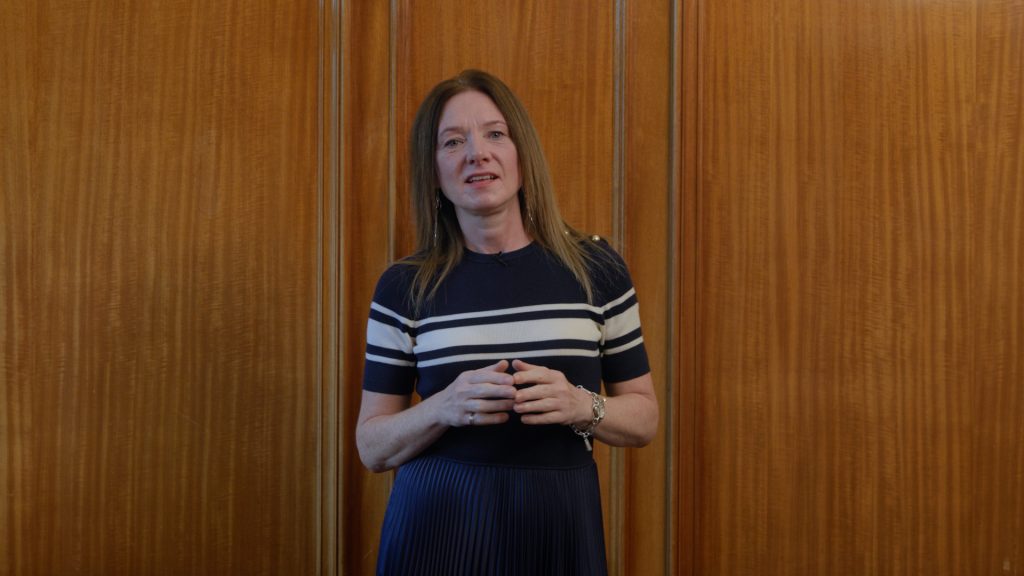
Melissa Westwood: Impactful research and – importantly – how we get there
What first comes to mind when you hear the words research culture? For me, it’s behaviours. How we talk to one another, encourage and support each other. How we treat people.
I’ve been at Manchester a long time. I came for the science. And whilst working in, arguably, the best UK centre for discovery research within Maternal & Fetal Health is one reason I’ve never moved; I’ve also stayed for the people. All through my time as a PGR, Post-doc, Royal Society Fellow and tenured academic, I’ve benefited from the very best of positive research culture. I’ve had mentors, both formal and informal, advocates and role models, who academically and professionally, have inspired, challenged, encouraged and enabled me to develop and thrive within the University. I still do. It’s the support and collegiality of my research and professional service colleagues that allows me to balance running a Group with my AVP role. Taking on University and Faculty level roles made me realise that not everybody has had, or even currently has, such a good experience in Manchester. And poor behaviours exist across the sector. A 2020 report by Wellcome showed the extent and range of the issues, from bullying and harassment, unhealthy competition, through to lack of opportunities for equitable progression.
No researcher should be broken in the making of our data/concepts/constructs; we want all involved in research to experience the benefits of a positive culture, no matter their discipline or role. So, while we in Manchester have mechanisms to guide positive behaviours, such as statements of expectations on career development, leadership training, promotion criteria that include collegiality, ‘Report and Support’, and Manchester Gold, there is still much to do.
But culture, like values, is a pluralism; multiple distinct cultures coexisting equitably within a single society, each maintaining their unique identities while contributing to the larger social framework. So, you might focus on openness, and how we collaborate with each other to share and build on research ideas when thinking about research culture. Or maybe undertaking our research with integrity and making sure others can trust and reproduce our results. Or perhaps for you, it’s about EDI, and ensuring opportunities to succeed and progress are available to all, regardless of background or personal characteristics.
This means that here at Manchester, we have many pockets of excellent research culture, and lots of people working passionately on the things that matter most to them. But we’re not always so good at bringing these different aspects of research culture together to think about how they complement each other, how to share good practice, and how to apply learnings to our own contexts.
So now, on behalf of Research Strategy Group, me and colleagues across the faculties and professional service directorates are trying to link and amplify great work in different parts of the university by building on Vitae’s new Research Culture Framework, which outlines 13 areas of research culture, and is forming part of the discussion on what the People, Culture and Environment metrics/narrative should look like in the next REF.
This doesn’t mean yet another 13 things you need to start thinking about / doing. All fit within the themes of:
- Supporting diverse and rewarding careers
- Enabling open and impactful research
- Upholding the highest levels of responsible and ethical research
- Building collaboration and interdisciplinarity
So, you’re probably doing much of what makes Manchester a great place to do research already. However, if there is anything new here for you, or you want to expand your practices and/or try a different approach, then take a look at our new ‘research culture and environment hub’, which brings together the support and resources available within each theme. Perhaps there’s more? We want to surface examples of positive research culture and connect people to resources and support they might not be aware of, so that’s why we are now asking you to do three things:
- Explore and make use of the support available, on our research culture and environment hub
- Talk to your colleagues about the different areas of research culture, and what this means in your area
- Tell us what research culture means to you, what is working well and what needs to improve – you can use this anonymous form.
Culture change comes from people. You, as individuals, and all of us collectively, effect change through commitment to consciously working in a considerate, inclusive and collaborative way. Working together like this will not only make us proud of the impactful research we can do within the great facilities we enjoy in Manchester, but also, and just as importantly, of how we did it.
Professor Melissa Westwood,
Associate Vice-President for Research



Thank you for this Viewpoint. As someone involved in developing online and distance teaching and learning, I see how research culture and teaching practices are intertwined. A research culture that emphasises collaboration, accessibility, and intellectual rigour can deeply enrich online education, fostering an environment where students are encouraged to think critically and engage actively, even in digital spaces.
Conversely, teaching practices in online and distance learning, which prioritise clarity, inclusivity, and responsiveness, can reinforce a positive research culture. By bridging these elements, initiatives like the Vitae framework can help us create a more cohesive and supportive environment across faculties. This commitment not only enhances our research culture but also strengthens Manchester as an inspiring place for both teaching and learning.
Many thanks for your reflections Stephen. Agree that the interaction between these two core goals of the University is important – we’ll be sure to consider this as we continue to develop our research culture.